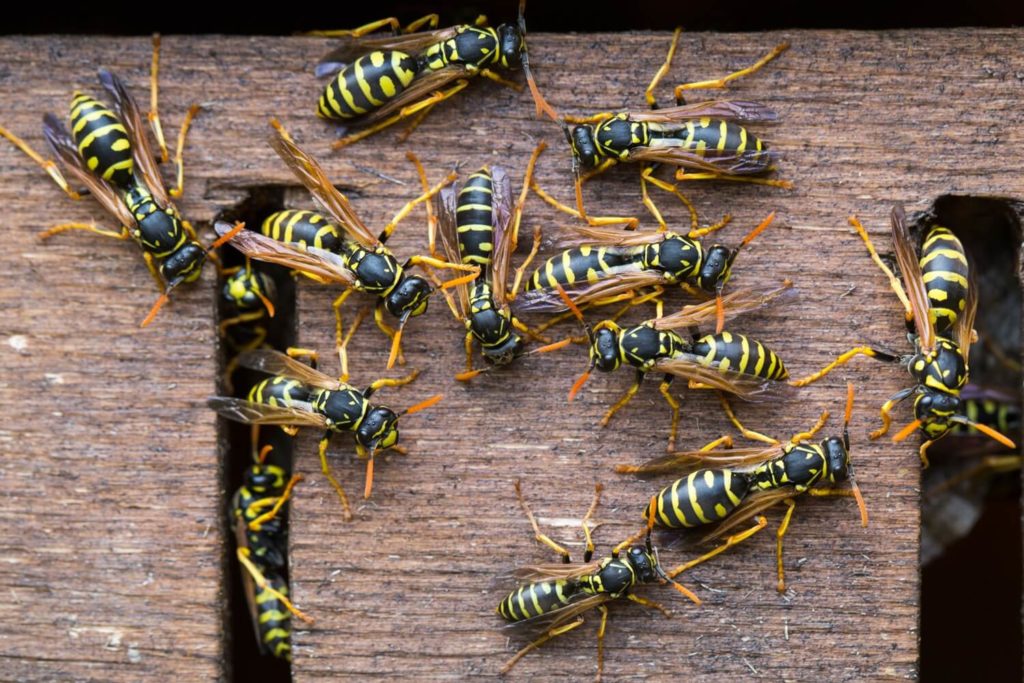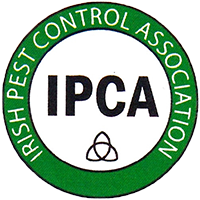As the nights draw in and summer draws to a close, many of us want to make the most out of the remaining summer weeks. However, it can seem like wasps have the same idea!
As we move towards autumn, the behaviour of wasps changes, and they can be a real blight and, in some cases, a danger. But why is this? And what can you do about it?
This article explores the reason that wasps are at their most irritating state towards the end of the summer.
Are wasps more of a danger late in the summer?
The short answer is yes, wasps are more likely to come into contact with humans later in the summer. The reason for this lies in the nature of wasps. How they breed, eat, and overwinter, all contribute to the increased threat from wasps in the late summer months and into the early autumn.
To understand the reasons behind this change of behaviour, we need to look at how wasp colonies function. The answer is truly intriguing, and like them or loathe them, the reason that wasps are more irritating late in the summer makes fascinating reading.
The ecology and anatomy of wasps
The story begins in the spring when the queen wasps come out of hibernation and begin to build their nest and lay their eggs. When the first brood of female worker wasps emerges, their task is to help the queen expand the nest and to forage for food for the next generations of larvae.
This is where the first point of note appears. At this stage in the lifestyle of the nest, the worker wasps are hunting for soft-bodied insects with which to feed the developing larvae. However, the worker wasps themselves cannot feed on the food they gather because of their anatomy.
The problem is their thin waists, this restricts access to their gut and means they cannot directly digest the food they gather. Instead, they chew the food and feed the pulped food to the larvae. In return, the larvae secrete a sugary substance that the workers feed upon. During this period, wasp and human interaction are minimal as they are more interested in gathering insects to feed the next generations.
But this behaviour changes later in the summer. At some point, the queen will stop expanding the nest and instead, she will begin to produce new queens and male wasps. These are the final generations that the queen will lay, and once they have “fled the nest”, the queen will stop laying.
This is what triggers the behaviour change and makes wasps more troublesome in the late summer. Once the queen has stopped laying, the worker females have no larvae to produce the sugary substance that they feed on. Luckily for the wasps, humans love their sugary substances too!
At this time of year, wasps are attracted to any sugary substance. Soft drinks, jam, and rotten fruit are all great attractants. In the case of the latter, rotten fruit has often fermented and contains alcohol, so not only are the wasps actively seeking out sugary substances, but they might be drunk too.
And there is nothing more irritating than a drunk and hungry wasp!
What can I do if I think I have a wasp problem?
Swatting a few wasps away from the top of our drinks or food is to be expected each year. But what do you do if there are more than just a few wasps bothering you?
In some cases, the behavioural patterns of wasps mean that you may have had a wasps nest on your property all summer and not noticed it until the queen stopped laying. Depending on the scale of the problem, there are a few steps you can take to reduce it.
Try not to swat wasps
Wasps release a chemical distress signal when they feel threatened, this alerts other wasps to the dangers. Wasps are defensive by nature and can swarm to help their threatened nest mate.
Remove temptation
Removing access to the sugary substances they seek will help keep wasps from spoiling the last days of summer. Keeping bins tightly sealed and not leaving foodstuffs (especially sugary foods!) can help to keep wasps at bay.
Avoid perfumes and strong body scents
Sweet scents will definitely attract wasps in the late summer. Try to avoid using strong perfumes and deodorants at this time of year.
Call in the professionals
At this time of year, wasps can be at their most aggressive. When paired with their behaviour change, the risk of attack is heightened if you have a wasp nest on your property.
The size of the nest and the number of individuals it contains can also be at its greatest.
For these reasons, it is always best to seek the help of a professional pest control company if you have a serious wasp problem.
Conclusion
Wasps are more than just a nuisance, in extreme (and rare) cases, a wasp nest nearby can result in serious injuries. If you are facing a wasp blight and think you have a nest on your property, then the most prudent course of action is to let the professionals deal with your wasp problem.
At Complete Pest Control, we can quickly and efficiently remove any wasp nest and let you enjoy the rest of the summer in peace. Call us today for a swift response to your late-summer wasp problem. With our 100% guarantee that we will solve your problem, you can rest easy knowing that the remainder of your summer will be wasp free.


